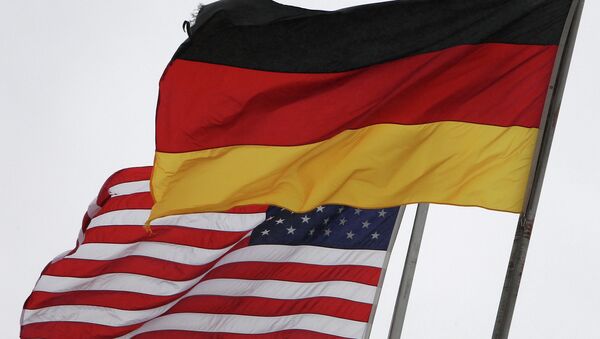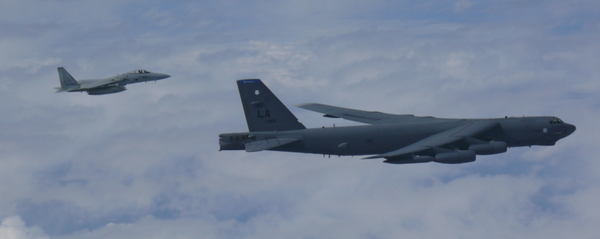"Unfortunately, we must reschedule the Berlin meetings due to pressing issues. We look forward to rescheduling this important set of meetings. The Secretary looks forward to being in Berlin soon," State Department spokesperson Morgan Ortagus said, according to multiple reports.
According to Bareto, there is speculation that the cancellation is indicative of failing US-German relations.
"This [the cancellation] is highly unusual, according to former diplomats," Barreto told hosts John Kiriakou and Brian Becker.
"I think the Germans feel a little bit slighted… This comes at the very last moment. But again, Germany is not in agreement with the Pompeo style of diplomacy, obviously. Anti-Trump is at its highest right now in Europe and in Germany, because they [Germany] are being criticized for not spending sufficiently in NATO, for example," Barreto told Sputnik.
"They [Germany] didn't commit to the voluntary 2 per cent target from 2014 in NATO funding. The Russian-German Nord Stream 2 pipeline has been highly criticized by the US, and of course, there have been the [US] threats of punitive tariffs because of Germany's trade surplus. Of course, there is also this escalation with Iran, which I'm sure the Germans will be against. Maybe it was an avoidance strategy — it's definitely up for speculation," she continued.
The cancellation comes two days after the US deployed a carrier strike group and a bomber task force to the Middle Eastern region, a move that US National Security Adviser John Bolton said was intended to send a clear message to Iran that any attack on Washington's interests or its allies will be met with an "unrelenting force," Sputnik previously reported.
Tensions between Iran and the US further deteriorated in May 2018, after the US withdrew from the Joint Comprehensive Plan of Action (JCPOA), more commonly known as the Iran nuclear deal, an international agreement on Iran's nuclear program established in July 2015 between Iran, the US and five other countries. Since then, the US has imposed multiple rounds of sanctions on Iran, attempting to bring the country's oil exports down to zero.
In April, Tehran warned that any direct effort by the US or any other country to stop the country from exporting oil could lead to a closure of the Strait of Hormuz, the strategic waterway that separates Iran from other Persian Gulf countries and through which about 20 per cent of the world's total oil supplies pass, Sputnik previously reported.
Germany expressed regret to the US withdrawing from the Iran nuclear deal, with German Foreign Minister Heiko Maas calling for the establishment of independent payment channels, so that European businesses could continue to do business with Iran without fear of being sanctioned by the US.
"It is therefore essential that we strengthen European autonomy by setting up payment channels independent of the US, creating a European Monetary Fund and building an independent Society for Worldwide Interbank Financial Telecommunication (SWIFT) system. The devil is in a thousand details," Maas said in August 2018, CNBC reported. "But every day that the [Iran] agreement continues to exist is better than the highly explosive crisis that otherwise looms in the Middle East."
Furthermore, Trump has repeatedly criticized Germany for its defence spending. Under the North Atlantic Treaty Organization [NATO] regulations, member countries should allocate 2% of their gross domestic product to their military, the Washington Post reported. However, Germany is expected to only spend around 1.2% of its gross domestic product on defence this year.
Germany, along with other European nations, has also criticized the US' threat to deploy troops in Venezuela. Last week, Bolton and Pompeo amped up the intervention rhetoric, stating that "military action" is still on the table as a viable option.
In addition, Merkel has repeatedly defended Russia's Nord Stream 2 pipeline project, stating that it is in the EU's interests and that it compromises neither the bloc's nor Germany's energy security. Washington, on the other hand, claims that the pipeline will increase Europe's dependence on Russian gas.
The pipeline is a joint venture between Russia's Gazprom, Germany's Uniper and Wintershall, France's Engie, Austria's OMV and Anglo-Dutch Royal Dutch Shell. It is set to be constructed at the bottom of the Baltic Sea and deliver around 1.9 trillion cubic feet of Russian gas annually to the EU once it's completed. However, just last week, Washington threatened to impose sanctions on German companies involved in the construction of the $11 billion pipeline, with Trump accusing Germany of being "captive" to Russia.
"There are many, many signals that are coming across" that signal deteriorating relations between the US and Germany, Barreto told Sputnik. "This [seemingly] strong transatlantic bond is literally coming apart at the seams."
"It's very, very alarming… this is a massive wake-up call," Barreto noted, also noting that Germany and Europe have to "find their own way" and not be "fixated" on America.





